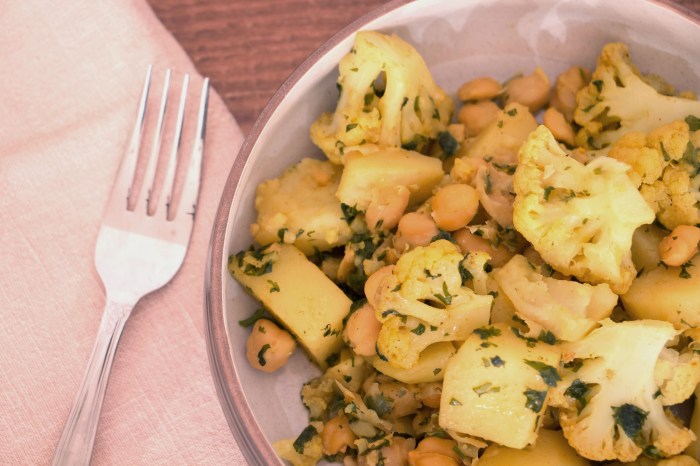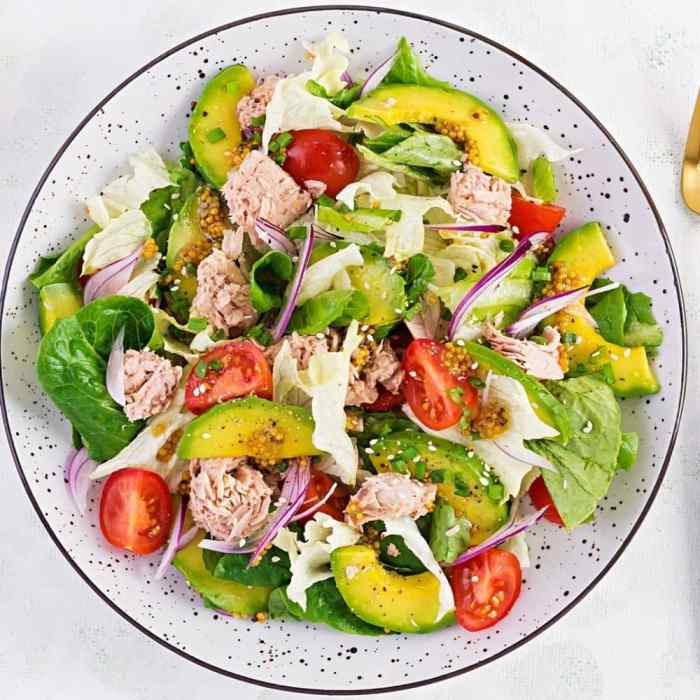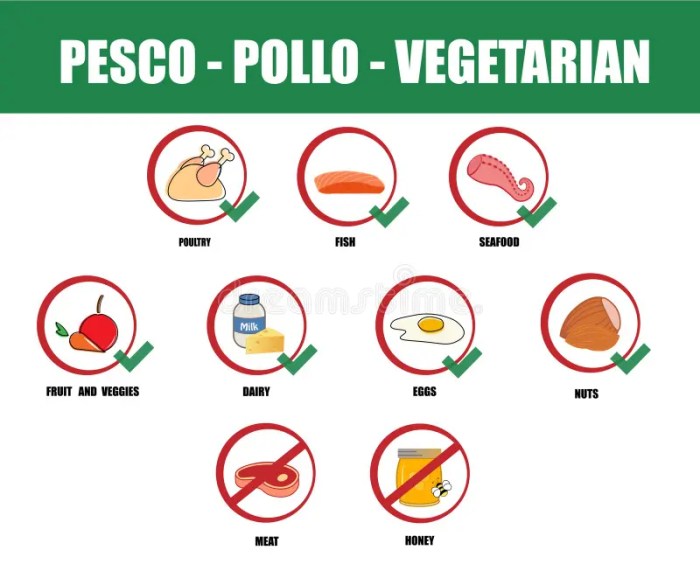Embark on a culinary adventure with the pesco pollo vegetarian diet, a unique approach to plant-based eating that embraces the flavors of fish and poultry. This comprehensive guide unveils the principles, nutritional benefits, and health implications of this increasingly popular dietary choice.
As you delve into the world of pesco pollo vegetarianism, you’ll discover a treasure trove of plant-based delights, from vibrant fruits and vegetables to hearty whole grains. Learn how this diet can nourish your body and mind, empowering you to make informed choices about your health and well-being.
Overview of Pesco Pollo Vegetarian Diet

Pesco pollo vegetarianism is a type of vegetarian diet that includes fish and chicken in addition to plant-based foods. It is a more flexible form of vegetarianism that allows for the consumption of animal products from a limited number of sources.
The key principles of pesco pollo vegetarianism are:
- Exclusion of red meat and pork:Pesco pollo vegetarians do not consume red meat, such as beef, lamb, or pork, or any products made from these animals.
- Inclusion of fish and chicken:Pesco pollo vegetarians include fish and chicken in their diet. They may also consume eggs and dairy products.
- Emphasis on plant-based foods:Plant-based foods, such as fruits, vegetables, whole grains, and legumes, form the foundation of a pesco pollo vegetarian diet.
Some examples of typical foods consumed by pesco pollo vegetarians include:
- Fruits: Apples, bananas, berries, citrus fruits
- Vegetables: Broccoli, carrots, celery, leafy greens, tomatoes
- Whole grains: Brown rice, quinoa, oats, whole-wheat bread
- Legumes: Beans, lentils, peas
- Fish: Salmon, tuna, cod, tilapia
- Chicken: Chicken breast, chicken thighs, chicken wings
- Eggs
- Dairy products: Milk, yogurt, cheese
Some examples of foods avoided by pesco pollo vegetarians include:
- Red meat: Beef, lamb, pork
- Processed meats: Bacon, sausage, hot dogs
- Organ meats: Liver, kidney, heart
- Gelatin
- Animal-based rennet
Nutritional Considerations: Pesco Pollo Vegetarian Diet

The pesco pollo vegetarian diet offers a range of nutritional benefits, including increased intake of fruits, vegetables, and lean protein. However, it is essential to consider the potential nutrient deficiencies associated with this diet and develop strategies to mitigate them.
The nutrient content of foods commonly included in a pesco pollo vegetarian diet varies depending on the specific foods chosen. Fruits and vegetables are rich in vitamins, minerals, and antioxidants, while fish and poultry provide essential amino acids, omega-3 fatty acids, and other nutrients.
Potential Nutrient Deficiencies, Pesco pollo vegetarian diet
One potential nutrient deficiency associated with a pesco pollo vegetarian diet is vitamin B12, which is primarily found in animal products. To mitigate this deficiency, individuals following this diet should consider consuming fortified foods, such as cereals and nutritional yeast, or taking a vitamin B12 supplement.
Another potential nutrient deficiency is iron, which is essential for red blood cell production. Iron is found in both plant and animal foods, but the iron from plant sources is less easily absorbed by the body. To enhance iron absorption, individuals following a pesco pollo vegetarian diet should consume iron-rich plant foods, such as lentils, beans, and leafy greens, in combination with vitamin C-rich foods, such as citrus fruits and bell peppers.
Other potential nutrient deficiencies that may need to be considered include calcium, zinc, and vitamin D. Calcium is important for bone health and can be obtained from dairy products, fortified plant milks, and leafy green vegetables. Zinc is essential for immune function and can be found in beans, nuts, and whole grains.
Vitamin D is important for bone health and can be obtained from fatty fish, fortified foods, and sunlight exposure.
Embarking on a vegetarian journey? Check out our comprehensive vegetarian diet list for a wide range of nutritious and satisfying options. From leafy greens and colorful fruits to whole grains and legumes, this guide will help you create balanced and flavorful meals that support your plant-based lifestyle.
Health Implications

A pesco pollo vegetarian diet offers several potential health benefits, primarily due to its emphasis on consuming nutrient-rich foods like fruits, vegetables, whole grains, fish, and poultry.
Research has linked this diet to improved cardiovascular health, reduced risk of chronic diseases, and effective weight management.
Cardiovascular Health
The pesco pollo vegetarian diet is rich in omega-3 fatty acids from fish, which have anti-inflammatory properties. These fatty acids can help lower blood pressure, reduce triglyceride levels, and improve cholesterol profiles, all of which contribute to a healthier heart.
Additionally, the diet’s emphasis on fruits and vegetables provides antioxidants and fiber, which can further protect against heart disease.
Weight Management
The pesco pollo vegetarian diet can support weight management due to its focus on nutrient-dense foods that are generally low in calories and high in fiber.
Fiber promotes satiety, helping individuals feel fuller for longer and reducing overall calorie intake. Fruits, vegetables, and whole grains are all excellent sources of fiber.
Disease Risk
Studies have suggested that a pesco pollo vegetarian diet may be associated with a lower risk of certain chronic diseases, including type 2 diabetes, certain types of cancer, and neurodegenerative disorders.
The diet’s emphasis on fruits, vegetables, and whole grains provides antioxidants and anti-inflammatory compounds that can help protect against cell damage and reduce the risk of these diseases.
Potential Risks and Concerns
While a pesco pollo vegetarian diet can offer many health benefits, there are some potential risks and concerns to consider:
- Vitamin B12 deficiency:Vitamin B12 is primarily found in animal products, so vegetarians and vegans need to ensure they consume fortified foods or supplements to avoid deficiency.
- Iron deficiency:Iron is less bioavailable from plant sources, so vegetarians need to consume iron-rich foods like beans, lentils, and fortified cereals.
- Omega-3 fatty acid intake:While fish provides omega-3 fatty acids, vegetarians who do not eat fish may need to consider supplementation or consume plant-based sources like flaxseeds or walnuts.
It is essential to consult with a healthcare professional or registered dietitian to ensure a pesco pollo vegetarian diet meets individual nutritional needs and to address any potential concerns.
Comparison to Other Vegetarian Diets
Pesco pollo vegetarianism, which incorporates fish and poultry into a plant-based diet, stands apart from other vegetarian diets like lacto-vegetarianism and veganism. These variations in dietary choices lead to distinct nutrient profiles and potential health implications.
Similarities and Differences in Food Choices
All vegetarian diets emphasize plant-based foods, including fruits, vegetables, whole grains, legumes, and nuts. However, pesco pollo vegetarianism allows for the consumption of fish and poultry, while lacto-vegetarianism permits dairy products and veganism excludes all animal products, including eggs, dairy, and honey.
Nutrient Profiles
The nutrient profiles of these diets vary based on the inclusion or exclusion of animal products. Pesco pollo vegetarianism provides a wider range of nutrients compared to veganism, as fish and poultry contribute essential fatty acids, vitamin B12, and heme iron.
If you’re looking to make a healthier choice, consider adopting a vegetarian diet list. A vegetarian diet is one that excludes meat and fish, and instead focuses on plant-based foods like fruits, vegetables, and whole grains. This type of diet has been linked to numerous health benefits, including reduced risk of heart disease, stroke, and certain types of cancer.
Lacto-vegetarianism, with its inclusion of dairy, offers a good source of calcium, vitamin D, and protein.
Health Implications
Studies have linked vegetarian diets, including pesco pollo vegetarianism, to a lower risk of chronic diseases such as heart disease, type 2 diabetes, and certain types of cancer. However, the specific health benefits may vary depending on the type of diet followed.
For example, pesco pollo vegetarians may have a lower risk of heart disease due to the consumption of fish, which is rich in omega-3 fatty acids.
Advantages and Disadvantages
Each vegetarian diet offers unique advantages and disadvantages. Pesco pollo vegetarianism allows for greater flexibility and convenience, as fish and poultry are widely available. It also provides a wider range of nutrients compared to veganism. However, some individuals may have ethical concerns about consuming animal products.
Lacto-vegetarianism is a relatively easy transition from a meat-eating diet, as dairy products are common in many cuisines. It provides a good source of calcium and vitamin D. However, some individuals may experience digestive issues related to lactose intolerance.
Veganism is the most restrictive vegetarian diet, but it also has the potential to be the most health-promoting. It eliminates all animal products, which may reduce the risk of chronic diseases. However, it requires careful planning to ensure adequate intake of essential nutrients, particularly vitamin B12 and iron.
Implementation and Sustainability
Implementing a pesco pollo vegetarian diet requires careful planning and commitment. It involves incorporating fish and poultry into a primarily plant-based diet, while excluding red meat, pork, and lamb.
One practical strategy is to gradually transition into the diet by reducing meat consumption and increasing plant-based meals. This allows the body to adapt to the dietary changes and reduces the risk of nutrient deficiencies.
Challenges and Barriers
Challenges may include:
- Social pressure and limited options when dining out
- Concerns about meeting protein and vitamin B12 requirements
- Difficulty finding convenient and affordable pesco pollo vegetarian options
Solutions
Solutions to overcome these barriers include:
- Educating oneself about the diet and its nutritional benefits
- Seeking support from a registered dietitian or healthcare professional
- Exploring a variety of plant-based protein sources, such as legumes, tofu, and tempeh
- Choosing fortified foods or supplements to ensure adequate vitamin B12 intake
Environmental and Ethical Implications
The pesco pollo vegetarian diet has potential environmental benefits, as it reduces the consumption of resource-intensive animal products.
Ethically, it aligns with concerns about animal welfare, as it involves limiting the consumption of land animals.
Closing Notes
Whether you’re seeking a healthier lifestyle, exploring culinary diversity, or simply curious about alternative dietary approaches, the pesco pollo vegetarian diet offers a balanced and sustainable path. Its flexibility allows for individual preferences and dietary needs, making it an accessible option for those seeking a plant-forward lifestyle without sacrificing the enjoyment of animal products.
Question Bank
Is the pesco pollo vegetarian diet suitable for vegans?
No, the pesco pollo vegetarian diet includes fish and poultry, which are not part of a vegan diet.
What are the key differences between pesco pollo vegetarianism and lacto-vegetarianism?
Pesco pollo vegetarians consume fish and poultry, while lacto-vegetarians include dairy products in their diet but exclude all other animal products.
Are there any potential nutrient deficiencies associated with the pesco pollo vegetarian diet?
Yes, it’s important to be aware of potential deficiencies in vitamin B12, iron, and omega-3 fatty acids. However, these can be mitigated through fortified foods, supplements, or careful meal planning.